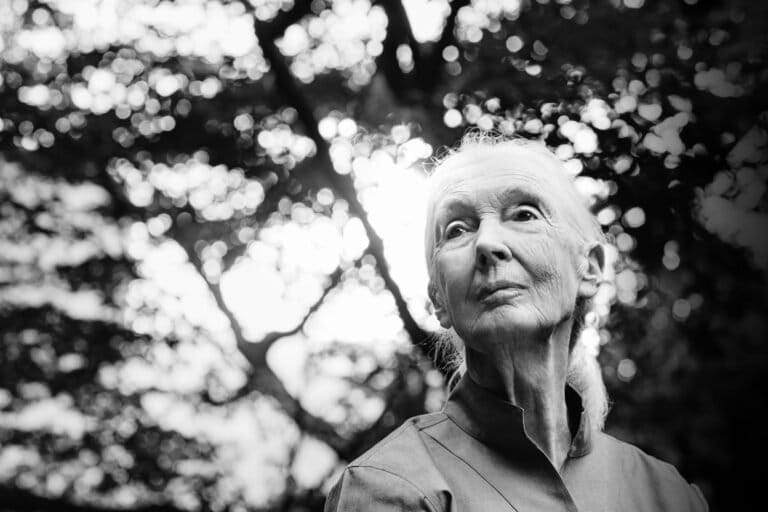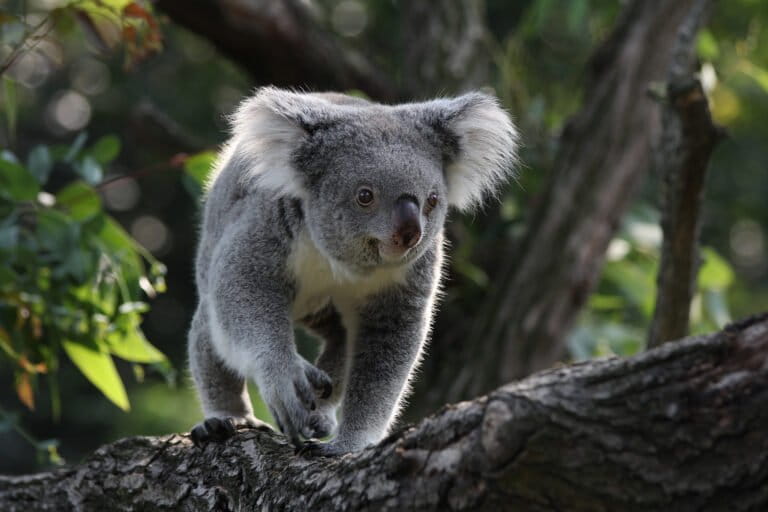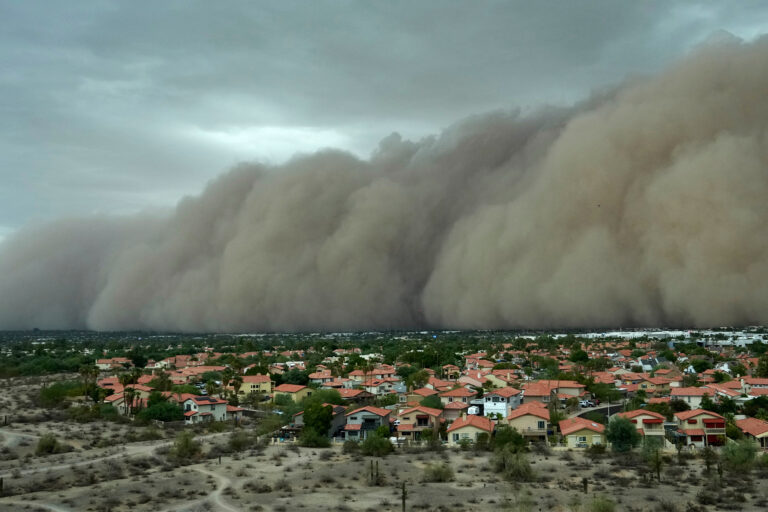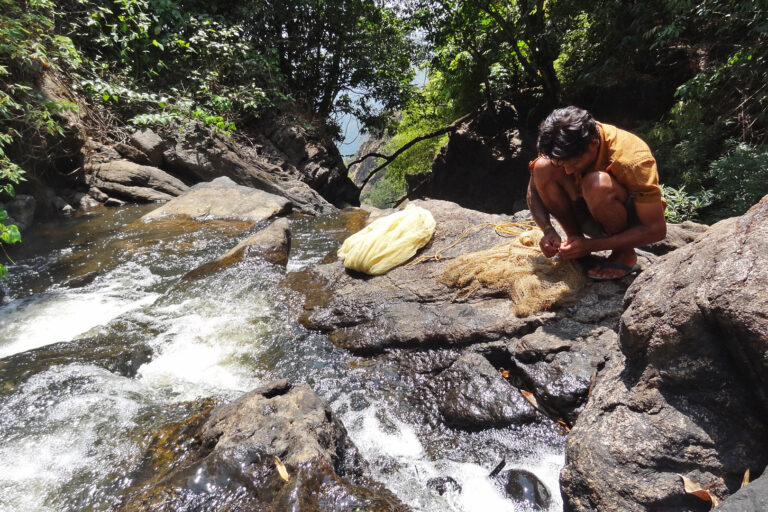- The arrival of the palm oil industry in Indonesia’s Papua region has wrought more than five times as much environmental and social damage than the benefits it has delivered, according to a new cost-benefit analysis.
- The study by the Pusaka Bentala Rakyat Foundation calculated the total benefits at 17.64 trillion rupiah ($1.15 billion) and the losses at 96.63 trillion rupiah ($6.30 billion).
- For local communities, the impacts are apparent in hiring discrimination, pollution of rivers, destruction of forests, and worsening food insecurity.
- There are mounting calls for a review of the oil palm concessions awarded in the Papua region, but the government has maintained its support for the industry, which it touts as a key driver of development.
JAKARTA — A study by an Indonesian NGO challenges government claims that oil palm cultivation is a driver of economic welfare and development, showing that the environmental and social damage from plantations in the country’s Papua region vastly outweigh any benefits.
Researchers at the Pusaka Bentala Rakyat Foundation carried out a cost-benefit analysis to determine economic impact of the palm oil industry in Papua, the latest frontier for Indonesia’s top commodity crop. They found that palm oil investments had brought 17.64 trillion rupiah ($1.15 billion) in economic benefits and tax revenues to the region. However, the social and environmental damage from the loss of ecosystem services due to extensive deforestation and habitat loss associated with these plantations amounted to 96.63 trillion rupiah ($6.30 billion).
“This translates to a cost-benefit ratio of 5.48, meaning that [palm oil] investment [in Papua] doesn’t bring benefit as much as damage,” said Wiko Saputra, an economist who led the study. “We can conclude that this is a bogus investment as proven by the cost-benefit ratio.”
Indonesia’s Papua region, which makes up the western half of the island of New Guinea, is home to the largest tract of intact rainforest left in Asia. But deforestation has increased in recent years as oil palm growers who are running out of land on the islands of Sumatra and Borneo look to forge a new frontier here. Over the past two decades, the Papua region has lost 663,443 hectares (1.6 million acres) of natural forest cover, with 71% of this deforestation occurring from 2011 to 2019. Palm oil is a major contributor to this deforestation.
The province of South Papua is the hardest hit, facing an economic environmental loss of 37.7 trillion rupiah ($2.5 billion), according to the Pusaka Bentala Rakyat analysis. All the region’s other provinces were also in the red: Southwest Papua with 25.69 trillion rupiah ($1.68 billion) in losses, West Papua with 15.72 trillion rupiah ($1.03 billion), Papua with 12.87 trillion rupiah ($839 million), and Central Papua with 4.62 trillion rupiah ($301 million).

Rivers degraded
Indonesia is by far the world’s biggest producer of palm oil, and the government has long touted the industry as key to eliminating poverty and improving people’s welfare, particularly in underdeveloped regions of the country.
In 2021, the vice president’s office said the government is pushing for the development of the palm oil industry in Papua, citing its purported success in alleviating poverty and growing the economy in Sumatra and Kalimantan, the Indonesian portion of the island of Borneo.
For many Indigenous communities in Papua, however, the outcomes have been disastrous. In Sorong district, Southwest Papua, the Klawari River that once ran clear is now a deep brown after the forests flanking it were cleared to make way for oil palm plantations, the cost-benefit analysis noted.
“In the past, there used to be a lot of fish. It was very easy for us to catch fish from the river,” Eliezer Kutumun, chief of the hamlet of Klawari. “Now, the river has been polluted from the waste from palm oil plantations. The water is dark brown and if we use it for bathing, we will be itchy.”
A recent academic study of another Papuan river, the Kais, found that similar forest-clearing activity can increase water contamination for downstream communities due to the intensive use of agrochemicals on the plantations. As a result, the study found, Indigenous Moi communities living in the area can no longer use water from the river for their daily needs.

Few jobs to be had
And while the expansion of the palm oil industry in Papua has created jobs, they’re limited and mostly available only to non-Papuan Indonesians. One plantation in Boven Digoel district, for instance, was reported by state media as having only 28.6% of its workers being Papuans, despite the latter accounting for the majority of the local population.
Even those who do manage to get hired don’t necessarily see an improvement in their quality of life, according to the chief of an Indigenous Moi village where palm oil company PT Inti Kebun Sawit (IKS) has been operating since 2008.
“Since 2008 until now, the job opportunities for Indigenous Papuans are very limited,” the village chief said. “We’re only hired as plantation workers, security officers and foremen. These are all hard labor, with status as freelance workers and contract workers. None of our people work as a full-time worker at PT IKS.”

Loss of food security
The expansion of oil palms has also contributed to the ongoing food crisis in Papua, as Indigenous Papuans lose their forests to plantations, according to Wiko. For generations, local communities have lived off harvesting timber and medicinal plants from the forest, but are now deprived of this form of livelihood with the loss of their forests.
Many communities also rely on the forests for their daily sustenance, through hunting, fishing and gathering. A key resource is the sago palm (Cycas rumphii), whose starchy core has long been a staple food for communities, but which is also disappearing as oil palms spring up.
“Clearing the forest is the same as eliminating local food sources, according to Papuans,” Wiko said. “This is evident from the high level of food insecurity [in Papua].”
The Papua region has the lowest food security index in Indonesia, with 30 out of 42 districts and municipalities across Papua experiencing food insecurity, according to official data. As a result, it also has one of the highest rates of childhood stunting, with three to four out of every 10 children suffering from stunted development.
“This happens in places where there are oil palm plantations,” Wiko said. “This proves that the loss of forest results in Papuans losing their food source.”

Calls for a rethink
This environmental and social damage could get even worse as the palm oil industry is only just getting started in Papua, Wiko said.
As of 2019, the government had issued companies licenses to 1.57 million hectares (3.88 million acres) of palm oil concessions, an area half the size of the U.S. state of New Mexico. Of this, only 169,152 hectares (417,987 acres) have been cleared and planted with oil palms, according to official data.
If the total licensed area is cleared and planted with oil palms, “we can’t imagine how severe the food crisis would be [in Papua],” Wiko said.
That’s why it’s important for the government to reevaluate its policy of unwavering support for palm oil development in the region, he said.
There have been some government initiatives, local and national, to review palm oil permits in Papua and revoke them accordingly.
In 2021, the local government in the western part of the Papua region rescinded licenses to 12 palm oil concessions covering a combined 267,857 hectares (661,889 acres) after finding widespread administrative and legal violations. Three-fifths of the area was still forested.
At the national level, President Joko Widodo announced the revocation of hundreds of permits for logging, plantations and mines across Indonesia in early 2022, including in Papua. Unlike the local government, the central government’s justification for the revocation was that the concession holders hadn’t done anything with the land — implying that leaving the forest standing isn’t a priority for the Widodo administration.
Sulistyanto, a monitoring officer at the KPK, the national anticorruption agency, said it’s important for the government to hand over the rights to manage the revoked concessions to local and Indigenous communities in Papua.
“We push for the rights [to manage these concessions] to be given to the people once they’re revoked so that the cost [born from the expansion of the palm oil industry] can stop and the benefit can be enjoyed by the public more,” he said.
Banner image: An expansive palm oil plantation in Indonesia Papua. Photo by Mighty Earth.
FEEDBACK: Use this form to send a message to the author of this post. If you want to post a public comment, you can do that at the bottom of the page.














